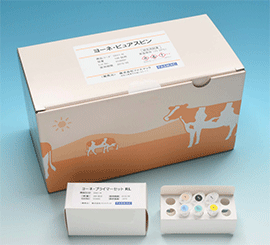Animals carry many bacteria in their intestines, skin, respiratory and genital mucosa, and live surrounded by various bacteria in the environment. Many bacteria coexist well with animals, but some can cause infections and even death in animals. Bacterial infectious diseases in livestock production sites not only cost the owners financially but can also cause infections in people who have close contact with the animals and livestock products. The Bacteria Group is mainly engaged in the following research to control various bacterial infectious diseases that threaten the health of humans and animals.

- Improvement of treatment for bovine mycoplasmal mastitis
- Development of vector vaccines using attenuated Erysipelothrix rhusiopathiae
- Analysis of host immune responses to Salmonella
- Elucidation of infection mechanisms of Lawsonia intracellularis, the causative agent of porcine proliferative enteropathy
- Elucidation of the pathogenic mechanism of Johne's disease causing persistent diarrhea in cattle and development of diagnostic methods for the disease
- Development of detection methods for honeybee pathogens
- Elucidation of pathogenesis of streptococcal diseases in domestic animals and development of detection and typing methods for the pathogens
- Elucidation of the drug resistance mechanisms of bovine respiratory pathogens
Through these studies, we hope to advance the prevention and diagnosis of bacterial infections in animals, strengthen the management base of the livestock industry, and contribute to the production of safe and secure livestock products.







